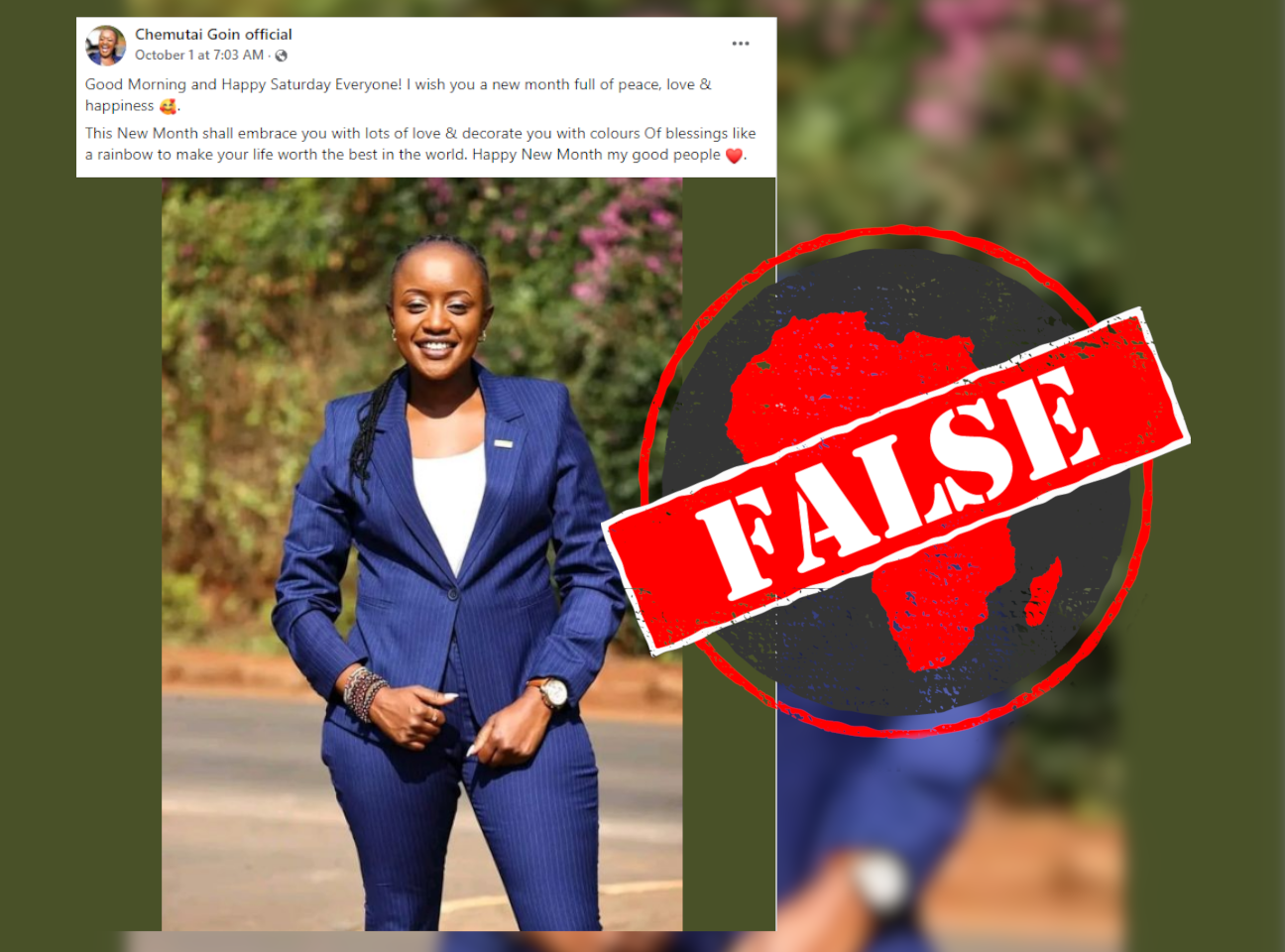IN SHORT: A Facebook page posting photos and controversial quotes, claiming to be by Kenyan journalist Chemutai Goin, is impersonating her. Goin says her official page is under the name “Jane Chemutai G”.
In the runup to William Ruto winning Kenya’s August 2022 presidential election, journalist Chemutai Goin gained prominence for covering his campaign.
She was even recognised by Ruto in his first speech after he was declared the winner.
Goin was also in a group of people honoured by former president Uhuru Kenyatta in May 2020 for their contribution in fighting the Covid-19 pandemic in Kenya.
This fame has led to the emergence of a number of Facebook accounts and pages impersonating the journalist, as Africa Check recently uncovered.
And now another Facebook page, Chemutai Goin official, has also been posting Goin’s photos and general news updates.
While some posts on the page appear harmless, others have attracted criticism from social media users.
One such post reads: “A man who separates two fighting ladies is allowed to touch anywhere – Lolgorian proverb.”
The Facebook “page transparency” section of this page shows it was created only on 8 September 2022. It has over 15,000 followers.
It seems unlikely this Facebook page is run by the journalist, but we checked.

Facebook page ‘fake’ says Goin
In the past, impersonators have used the names of the famous people in Kenyan society to publish controversial quotes on social media and even try to scam Facebook users.
Africa Check reached out to Goin and asked if the page belonged to her.
“My official Facebook account is Jane Chemutai G. All the others going by the name Chemutai Goin are fake,” she told us.
Republish our content for free
For publishers: what to do if your post is rated false
A fact-checker has rated your Facebook or Instagram post as “false”, “altered”, “partly false” or “missing context”. This could have serious consequences. What do you do?
Click on our guide for the steps you should follow.
Publishers guideAfrica Check teams up with Facebook
Africa Check is a partner in Meta's third-party fact-checking programme to help stop the spread of false information on social media.
The content we rate as “false” will be downgraded on Facebook and Instagram. This means fewer people will see it.
You can also help identify false information on Facebook. This guide explains how.




Add new comment